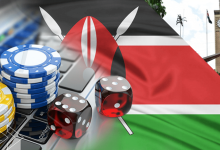The Remote Gambling Bill and the legalisation of online gambling in South Africa

Over the past decade, the sports betting industry has experienced robust growth in many jurisdictions, including South Africa. However, online gambling (interactive games), except for online betting through a licensed bookmaker, remains an unregulated and prohibited activity in South Africa.
The current prohibition is aimed at persons participating in a gambling game (similar to those ordinarily on offer in a casino or similar establishment) remotely using the internet (i.e., not in licensed premises such as a casino).
The legalisation and regulation of interactive games is dealt with in the National Gambling Amendment Act, 2008 (“2008 Amendment Act”) which was approved by the national assembly in July 2008. But its commencement date is yet to be proclaimed by the President. In light of the delay in the commencement of the 2008 Amendment Act, a private members bill, the Remote Gambling Bill, 2024 (“Remote Gambling Bill”) has been introduced to parliament. The Remote Gambling Bill aims to regulate interactive gambling and to provide for uniform norms and standards in respect of remote gambling.
Provision of interactive gambling facilities
Section 11 of the National Gambling Act, 2004 (“Act”) provides that no one may participate in or make available interactive games unless they are authorised in terms of the Act or other national legislation. An interactive game is a gambling game that can only be accessed over the internet, other than games that can only be played within licenced premises. A gambling game is a game in which a participant pays consideration with the chance that the participant might become entitled to or receive a pay-out. The outcome of a gambling game is dependent on the skill of the player or chance (or both). However, placing a bet or wager on an uncertain or unknown event or occurrence, is excluded from the concept of a gambling game. Accordingly, online betting is not an interactive game and is therefore not prohibited. In essence, placing bets on uncertain outcomes like the results of a football match, can be done remotely over the internet. However, an example of a prohibited interactive game would be online card-based games that one would usually play in a casino (where there is consideration paid for a potential pay-out). The Supreme Court of Appeal has in Casino Enterprise v Gauteng Gambling Board ruled that internet casinos based in other countries which make available gambling games in South Africa contravene section 11 of the Act.
Read Also: NPP’s Bawumia Promises to Abolish 10% VAT on Betting to Ease Economic Burden
The Remote Gambling Bill defines “remote gambling” as gambling through remote communication (being internet, mobile phone, radio, television etc.), including gambling on virtual gambling games, engaging in person-to-person gambling, equal chance gambling, gambling games and sports betting. The Remote Gambling Bill deals with all forms of gambling in a uniform manner, irrespective of whether such gambling takes the form of online betting or other types of online gambling.
The Remote Gambling Bill will apply to any provider who makes available remote gambling activities within South Africa even if the remote gambling equipment is located outside of the country, as well as any player situated outside of the country that has registered as a player with a South African remote gambling operator. This is consistent with the findings of the court in Casino Enterprise v Gauteng Gambling Board.
Winnings and remittance
Provision has also been made, subject to exchange control regulations and tax legislation, for the remittance of prize money by foreign players and the remittance of dividends by external companies that are licenced remote gambling providers (on condition that the company will be able to meet its local financial commitments).
The 2008 Amendment Act provides for forfeiture when a non-monetary prize is won but there is no player account. The operator is required to hand over the funds to the state. The Remote Gambling Bill provides for a similar process in respect of both monetary prizes and non-monetary prizes, where there is no player account.
Issuing of licences
The 2008 Amendment Act specifies that interactive gambling licences must be issued as a national licence. The Remote Gambling Bill on the other hand provides for the issuing of interactive gambling licences by the relevant provincial authority where the applicant’s place of business is or will be located.
Despite the issuing of provincial licences under the Remote Gambling Bill, a licence holder will be allowed to make remote gambling activities available outside the province where they hold a licence, and persons situated outside said province or even outside South Africa may register as players. This would allow interactive gambling providers to essentially choose a provincial authority wherefrom they wish to apply for a licence and set up their business in that province.
Source: CMS Law Now




















